What's Going on in Virginia?
Marriage for same-sex couples has been legalized in Virginia. The U.S. Supreme Court has decided not to take up a marriage equality case.
Virginia's litigation was among the most complicated of all the states with pending marriage cases. There were two cases in Virginia: Bostic v. Schaefer and Harris v. Rainey. Both date back to the summer of 2013. The Harris case was filed by Lambda Legal and the American Civil Liberties Union, and became a class action on behalf of all Virginia couples.
The Bostic case was originally filed by an independent law firm, but several months later the American Foundation for Equal Rights joined the case with attorneys Ted Olson and David Boies. It moved much more quickly through the federal courts than the Harris case, with plaintiffs winning at both the district and appellate levels. After the District Court ruling, the ACLU and Lambda Legal successfully petitioned to intervene in the case.
After having lost twice in the Bostic case, three Virginia officials seperately petitioned the U.S. Supreme Court for a last chance at arguing over its marriage ban, but the court denied their request.
Couples are now marrying in Virginia. Also, Gov. Terry McAuliffe has issued an executive order mandating that same-sex spouses of state employees receive the same access to benefits as opposite-sex spouses, and he has sent a directive to the Virginia Department of Social Services assuring that same-sex couples can adopt children.
What Happens Next?
Because Virginia is covered by the Fourth Circuit Court of Appeals, the Supreme Court's decision means that the appellate ruling is now precedent in Maryland, North Carolina, South Carolina, Virginia, and West Virginia.
Same-sex marriage was already legal in Maryland, and North Carolina and West Virginia embraced marriage equality last week. In South Carolina, state officials are vowing to keep up the fight against marriage equality.
How Do Virginians Feel About Marriage?
Public support has dramatically improved, with multiple surveys showing majority support since April of 2013.
This is a significant shift. Virginia legislators banned marriage and domestic partnerships in 1975 by a vote of 37-3 in the Senate and 81-8 in the House. Legislators passed a statutory ban with more specific language, again by an overwhelming majority, in 2004. The following year, the legislature passed a constitutional ban as well.
The change in public support may have been what prompted Gov. Terry McAuliffe, Attorney General Mark Herring, and Registrar of Vital Records Janet Rainey to declare the state's bans unconstitutional. They declined to defend the law, leaving state clerks to do so instead.
Can Gay and Lesbian Couples Get Married in Virginia?
Yes. This is the first time that gay and lesbian Virginians have been able to marry in their home state.
Unlike in Utah, there was no previous window during which Virginia couples could wed.
What Were the Arguments for Marriage Equality?
There were multiple parties making arguments for and against marriage equality in Virginia.
Ted Olson and David Boies argued that the Supreme Court has long recognized that marriage is a fundamental right. They rejected the claim that marriage for gays and lesbians would be a "new right," pointing out that the question at issue is whether a certain class can be excluded from an already-established right.
Olson and Boies also argued that Virginia's marriage restrictions fail under any standard of review. The state is violating the U.S. Constitution, they argued, and there is no logical justification for the laws.
Janet Rainey, the state registrar of vital records, argued that although states have typically been free to establish their own laws regarding marriage, "no appeal to federalism can justify an unconstitutional practice."
Rainey also countered an argument often used by antigay attorneys: that while marriage may be a fundamental right, same-sex marriage is not. Rainey argued that Supreme Court precedent established in Planned Parenthood v. Casey prohibits the "narrow-articulation approach" that would differentiate the exercise of a right by one group versus another. In addition, she argued, the Supreme Court clearly ruled in Zablocki that "the right to marry is of fundamental important for all individuals."
In a separate petition, Rainey pointed out that the "narrowest terms" requirement established by Glucksberg does not apply here. The Glucksberg case, which dealt with physician-assisted suicide, referred only to the establishment of new rights, not to the narrowing of existing rights such as marriage. In other words, the right to marry could only be defined in narrow terms if it had never previously been declared.
Rainey also compared Virginia's marriage ban to racial discrimination overturned in the Brown and Loving cases. Those decisions must also apply to gay couples, Rainey wrote: "There is no 'unless you are gay' exception."
What Were the Arguments Against Marriage Equality?
Norfolk County clerk George Schaefer argued that states should be allowed to enact any laws they wish regarding marriage and rejected comparisons to Loving with a vague explanation that racism is worse than homophobia.
Schaefer went on to claim that the Glucksberg case would require a "careful description" of the right being sought -- that is, marriage for same-sex couples. In addition, he wrote, that right is not rooted in America's history or tradition, and therefore not a fundamental right protected by the Constitution. He further compared same-sex marriages to statutory rape. He also cited the Baker case, now widely regarded as no longer applicable, to argue that the court should not consider marriage a matter of federal concern.
Prince William County clerk Michele McQuigg also relied on Baker v. Nelson, arguing simply that state marriage laws should not concern the U.S. Supreme Court.
But these arguments were ultimately unsuccessful.
On the following page, see video of the first same-sex couple to marry in Virginia.
Video of the first same-sex couple to marry in Virginia:

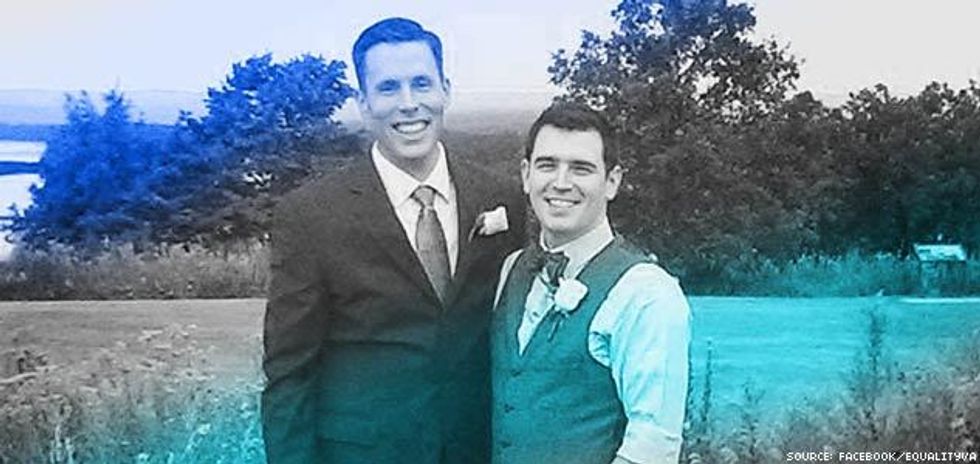
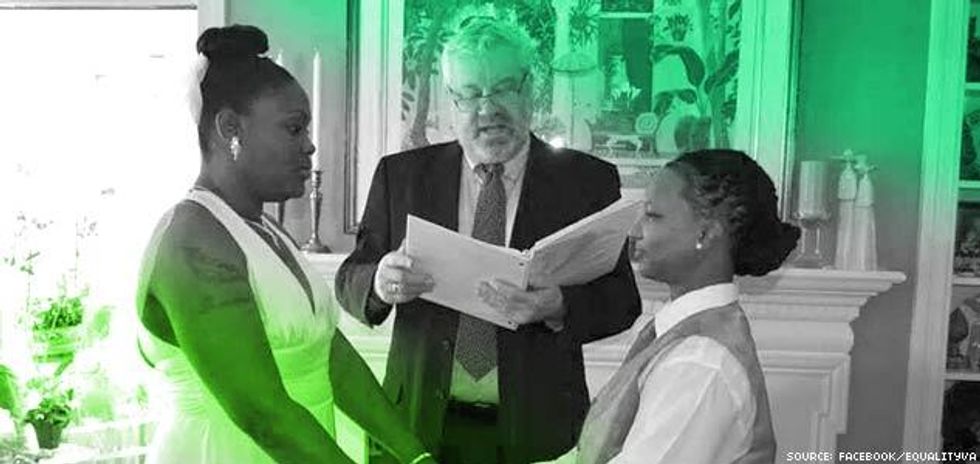
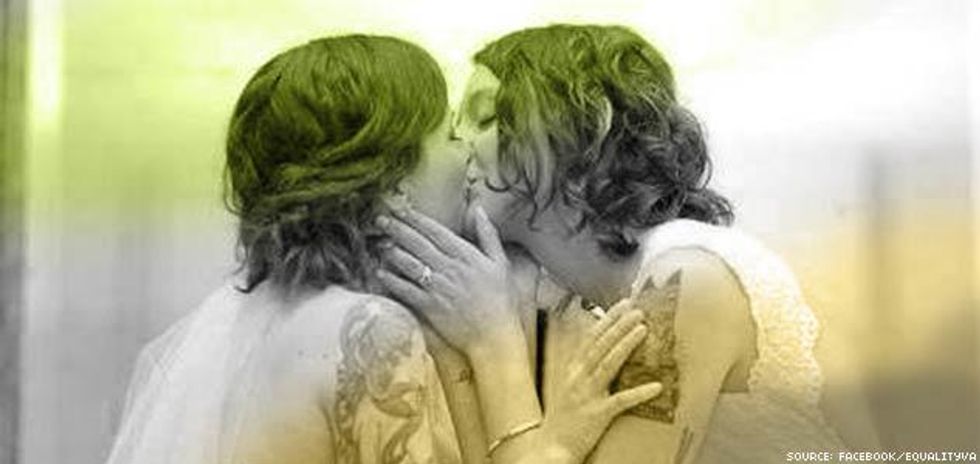
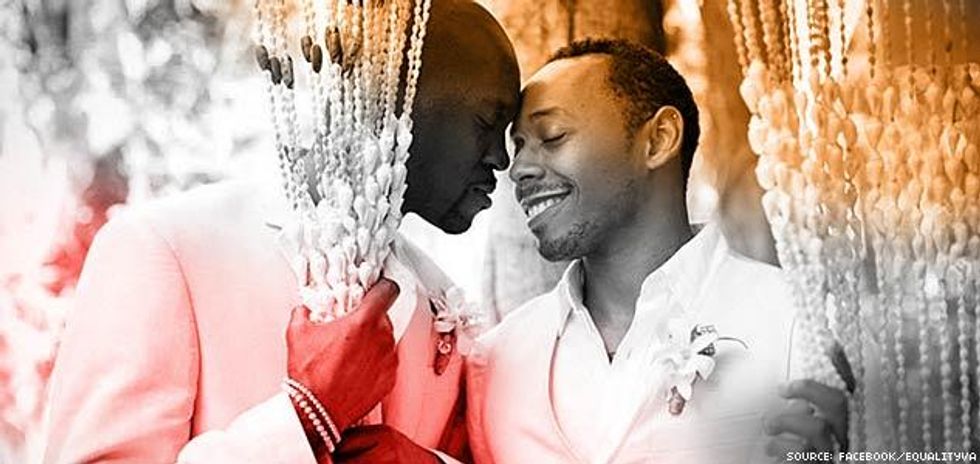
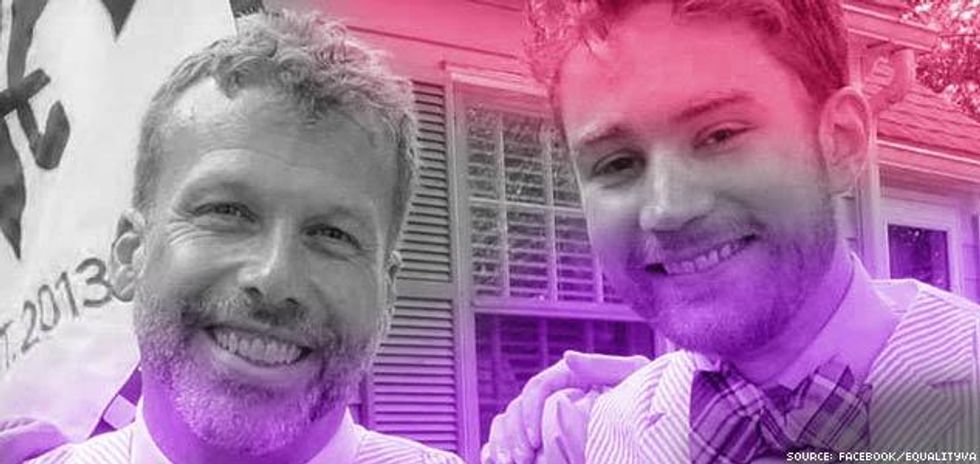
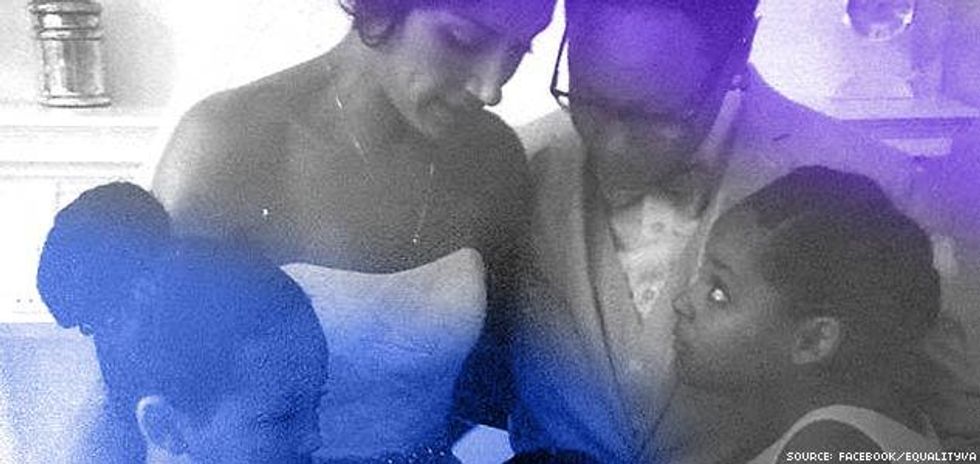




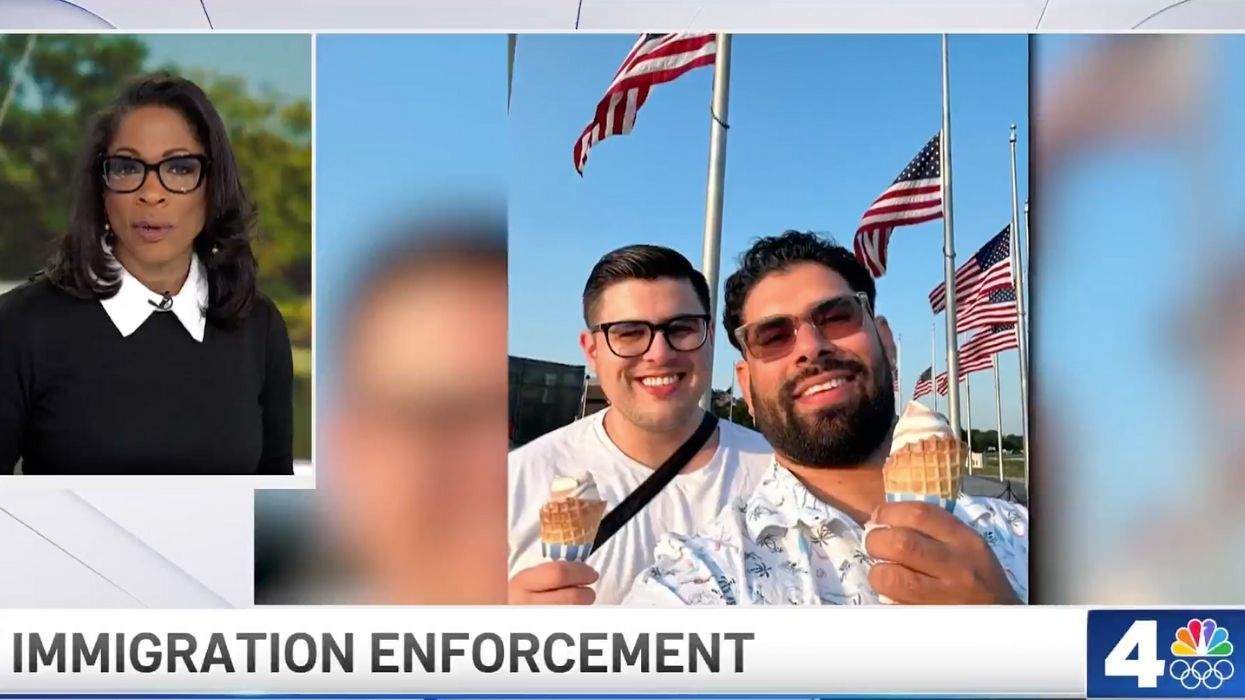
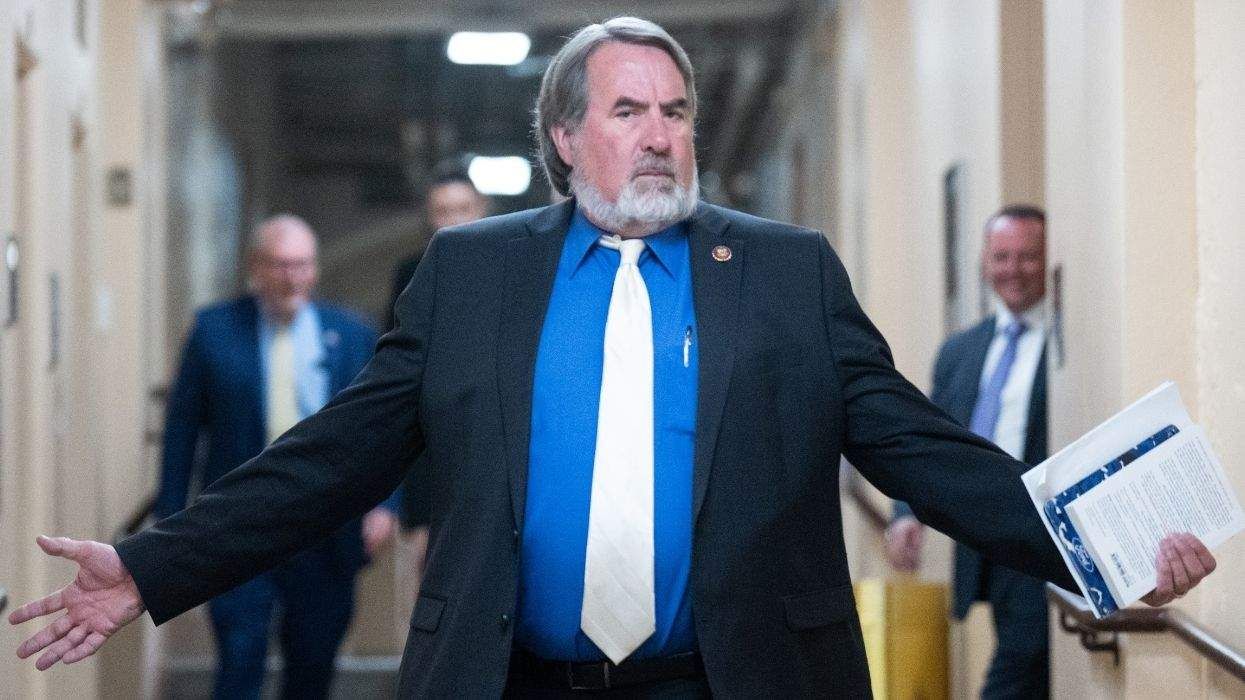

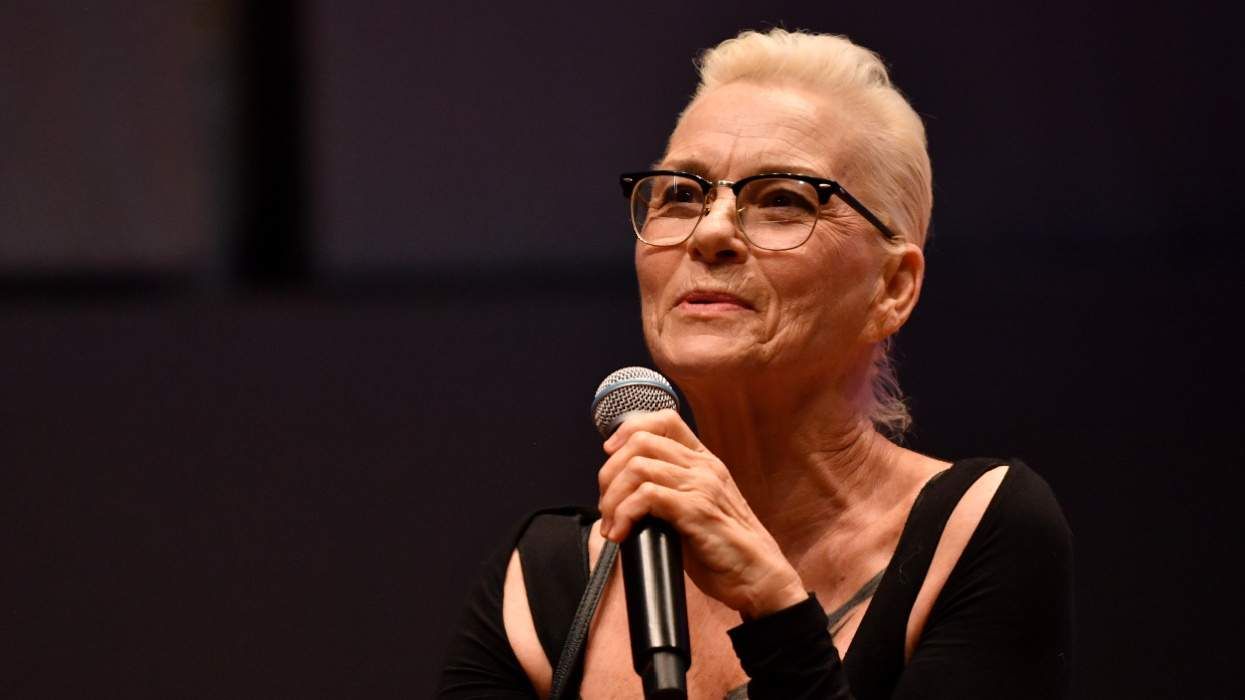
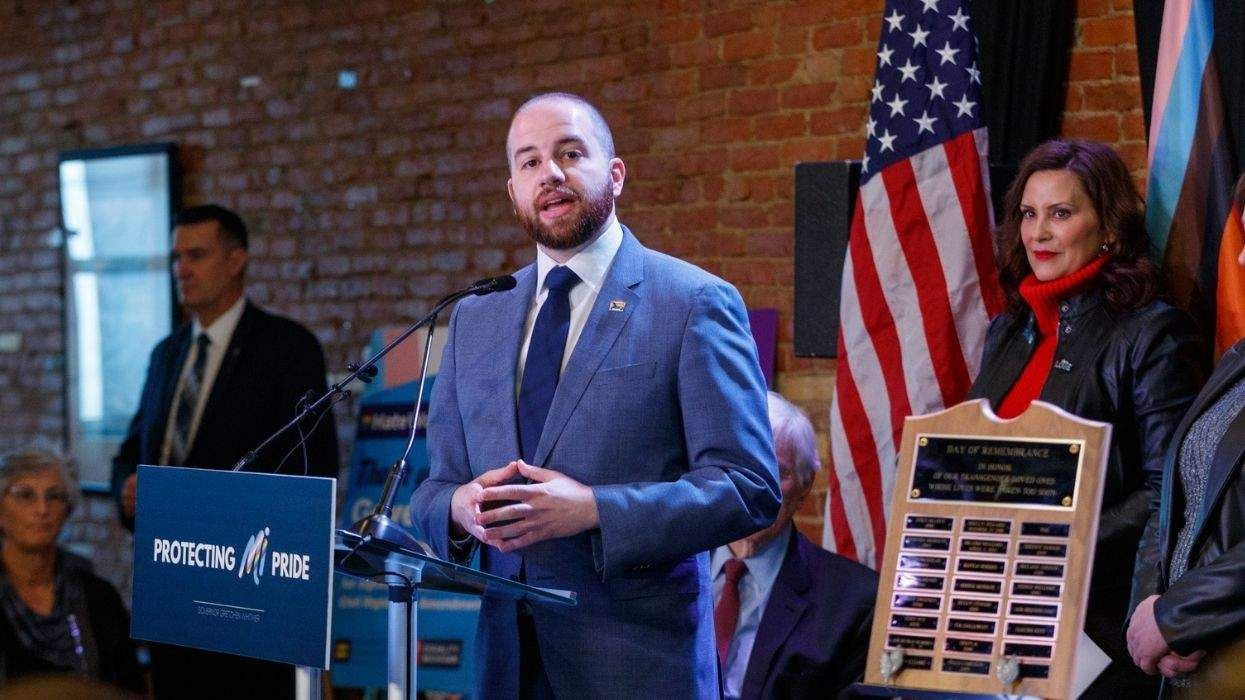





Charlie Kirk DID say stoning gay people was the 'perfect law' — and these other heinous quotes
These are some of his worst comments about LGBTQ+ people made by Charlie Kirk.